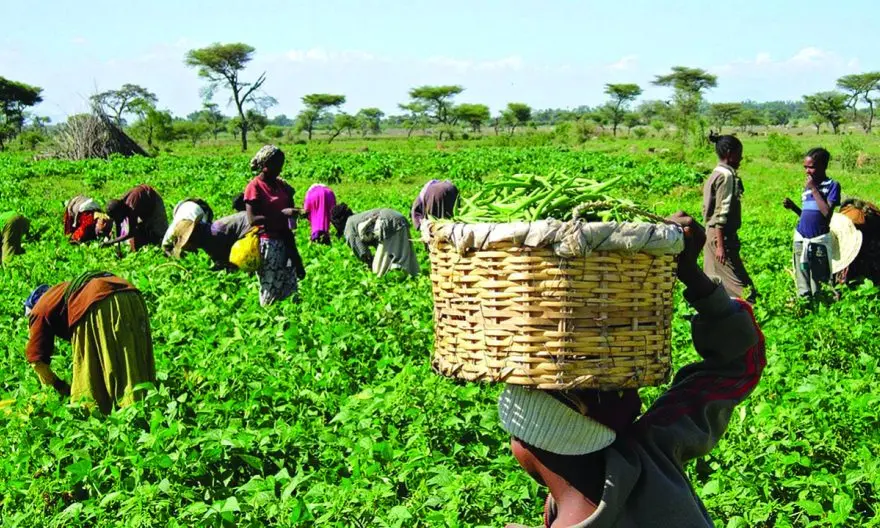BY KAYODE AKINMADE
President of the African Development Bank Group, Akinwumi Adesina, gave a stark warning on Nigeria’s import dependence recently. Speaking at the Council of Anglican Provinces of Africa retreat, Adesina said the decision by Nigeria’s government to allow massive food importation risks destroying its agriculture.
Adesina said: “Nigeria cannot rely on the importation of food to stabilize prices. Nigeria should be producing more food to stabilize food prices, while creating jobs and reducing foreign exchange spending. That will further help stabilize the naira. Nigeria cannot import its way out of food insecurity.”
The verdict is hard to contest, especially given that last year, the economic research service of the U.S. Department of Agriculture (USDA) put Nigeria’s 2024 projected rice import at 2.1 million metric tons, making the country the top rice buyer globally. However, if state governments in the country adopt the Ogun state governor, Prince Dapo Abiodun’s strategy, this climate of food importation is bound to change. It may sound like a fairytale, but with a yield of seven metric tonnes per hectare on the 200-hectare pilot project, the Gateway State under Abiodun’s strategic foresight produced approximately 1,400 metric tonnes of rice, equivalent to 20,000 bags of milled rice, bringing in an estimated revenue of N1 billion every three months.
Advertisement
Governor Abiodun, on Monday, August 19, flagged off the harvest of the 200-hectare Magboro rice farm in Obafemi-Owode local government area of the state. With the feat, the out-growers, including many youths and women who are new to farming, have effectively conquered poverty. And, what is more, following the success of the first harvest, the project will now be scaled up to 2,000 hectares, and there are plans to expand it to 5,000 hectares. The scale-up is projected to yield between N10 billion to N25 billion in revenue per quarter. The farm, a brainchild of the Ogun State Economic Transformation Project (OGSTEP), is supported by the World Bank to drive economic growth and development in the state.
The governor said: “This project started in April this year. They began planting in May, and today we are already harvesting, making it a three-month cycle. It means that we can do this three times a year . 20,000 bags of milled rice per cycle should be estimated to cost about N1 billion. So, these 200 farmers, made up of women and youths across the country, who farm here in just three months, have a revenue of N1 billion. If they do this three times this year, they will earn N3 billion. We have no business being hungry in Nigeria. In this place, I have 12,500 hectares of land, and all we have farmed is 200 hectares that yielded N1 billion for 200 farmers. From here, I can feed the rest of the country. We will scale up this project immediately from 200 to 2,000 hectares.We can generate N30 billion in revenue. We can take significant steps towards realising that vision of making Ogun State the food basket of this country.”
That is no idle boast. For instance, OGSTEP is not just providing critical support, including advanced agricultural techniques, access to quality seeds, modern irrigation systems and technical training for farmers, Governor Abiodun ensures that beneficiaries get a 65 per cent discount on the cost of each mechanisation operation. OGSTEP empowers farmers through training and retraining, increasing farm productivity. Crop inputs, herbicides and birds are distributed freely to farmers to boost their productivity. Aiming to strengthen the value chain processes in agriculture, especially among smallholder farmers in Nigeria, the Ogun State Ministry of Agriculture, in partnership with IITA–CGIAR, launched the Ogun State Farmer Information Management System (OGFIMS) on April 20, 2023. Before then, Governor Abiodun had won back-to-back best governor in agriculture recognition at the Nigerian Agriculture Awards.
Advertisement
No one who knows anything about the Gateway International Cargo Airport can doubt Abiodun’s commitment to the agricultural revolution. The airport provides a veritable platform to enhance the industrial base of the state, opening the frontiers of businesses and also opening the state to the rest of the world. It will generate approximately 50,000 direct and indirect jobs. It is built on an airport city and massive construction is ongoing there courtesy of the Nigeria Customs Service (NCS), among other agencies that have mapped out the place for their agency needs. It is not for nothing that President Bola Ahmed Tinubu approved the Special Agro-Cargo Processing Zone as a Free Trade Zone.
It can be no surprise that Ogun under Abiodun has one of the highest number of beneficiaries in the CBN/Federal Government Anchor Borrowers Programme (ABP) in cassava and has retained its ranking as the largest hub for industries (including Agro-ventures) in Nigeria, the largest egg and broiler producer, largest producer and exporter of lemon grass oil, largest hub for aquaculture in West Africa (according to FAO) and many others.
Governor Abiodun puts the development in perspective: “In line with our resolve to partner with the private sector and provide enabling environment for investments and agribusinesses, we have become the world epicenter as a dependable host and partner, especially with the Government initiative of establishing the Cargo Airport to supplement the Special Agro-Industrial Processing Zone (SAPZ) of the African Development Bank (AfDB) and other donor-funded projects including the IFAD/FGN Value Chain Development Project (VCDP), in which our state has recorded tremendous success with 12,000 beneficiaries supported with technology, inputs and credit.”
The establishment of an integrated farm estate, garri packaging plant and a 200-trainee soil-testing programme, complemented with the signing of MoUs with national and international development partners such as IITA, HarvestPlus and a host of other private sector partners on private sector-led initiatives, are all part of the Ogun agriculture revolution story, as is the Planting Materials Palliative (PMP) rolled out at the onset of the COVID-19 pandemic and targeted at 40,000 smallholder farmers. The Presidential Fertilizer Initiative supplied fertilizer to target 10,000 farmers.
Advertisement
If Ogun is now a leading producer of rice, maize, and cassava in Nigeria, it is because the Abiodun government invested heavily in the development of agricultural infrastructure: irrigation systems, farm roads, and storage facilities. It has won plaudits for fostering partnerships with private sector players and implementing livestock improvement mechanisms, including the distribution of breeding stock, veterinary support, and the establishment of grazing reserves.
That’s not all. Through the Anchor Borrowers Programme, the Abiodun administration has revolutionized youth involvement in agriculture in Ogun State. It created the Ogun State Investment Promotion Agency (OGUNIPA) and the Ogun State Business Executive Council (OGUNBEC) to make the Gateway State the destination of choice for investors. It regularly supports farmers in producing high-quality products and links them to markets and processors. Among others, the Ogun State Agricultural Policy and the Ogun State Livestock Development Policy guarantee this. The government empowers farmers with solar pump machines. It rolled out the N50 million Ijebu Development Initiative for Poverty Reduction (Eriwe) to develop the fish subsector in the state. In one go, it empowered 40,000 agripreneurs in cassava cultivation.
The message is clear: Ogun under Abiodun is on a massive journey of food security that highlights a cardinal feature of progressive, visionary leadership. That, in the final analysis, is a big plus for Nigeria.
Akinmade is special adviser on media and strategy to Governor Dapo Abiodun of Ogun state.
Advertisement
Views expressed by contributors are strictly personal and not of TheCable.
Add a comment







